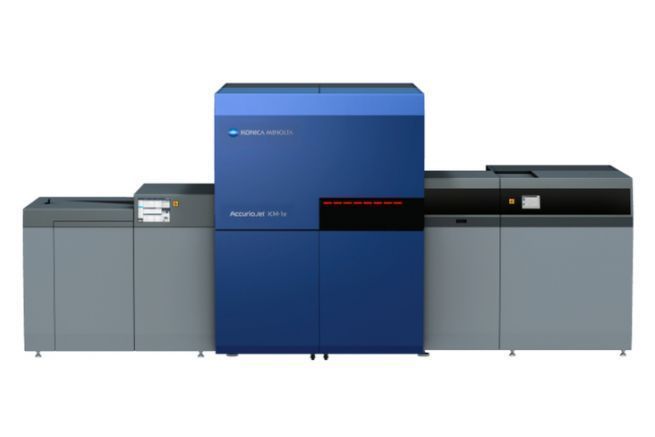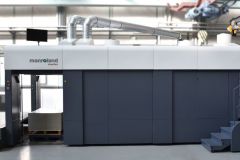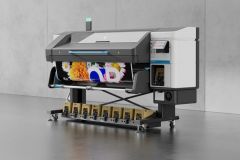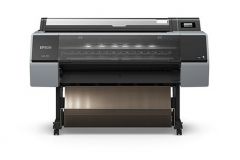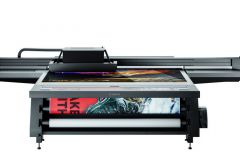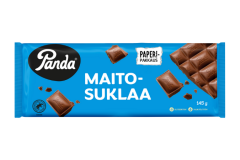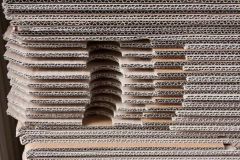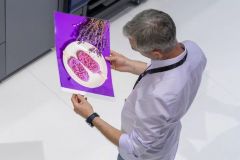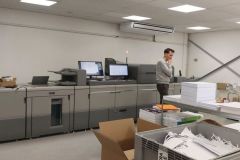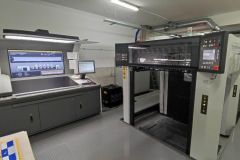Konica Minolta's AccurioJet KM-1e digital press has been awarded deinking certification for uncoated paper. Issued by INGEDE, the international association of the deinking industry based in Germany, this certification ensures that uncoated paper printed with the AccurioJet KM-1e is deinkable according to the INGEDE 11 method and thus more easily recyclable.
It is for the b2+ color UV LED press launched in 2020 its sixth deinking certification. In addition to uncoated paper, the inkjet sheetfed press, which prints on a variety of substrates (plastic, transparent film, metallic paper, cloth, etc.), already had INGEDE deinking certification for five coated papers, including recycled papers.
"The AccurioJet KM-1e is one of the few digital inkjet presses on the market to meet the INGEDE 11 test criteria for de-inkability, says Régis Ruys, Product Manager for Industrial Printing at Konica Minolta Business Solutions France . This allows us to offer sustainable production methods so that printed materials fit into the recycling loop."
A deinking score of 96 out of 100 for the AccurioJet KM-1e on uncoated paper
The tests for this certification were carried out in Germany according to the INGEDE 11 method. This method notes the optical properties of the deinked pulp (luminance, color, cleanliness) as well as various other criteria such as ink removal or blackening. A final score out of 100 reflecting the de-inkability of the print is thus obtained.
And with a 96 out of 100, the AccurioJet KM-1e earned a near perfect score.
An ecological and economic asset to be promoted to the principals
And this ownership of the Konica press will allow printers to lower the Citeo tax of their customers.
The company approved by the State to manage the paper EPR considers inkjet printing to be a disruptive element in the recycling of printed matter and applies a 5% penalty payable by the client. Only an INGEDE 11 test with a score of more than 70 out of 100 can be exempted from this penalty.
"Konica Minolta's approach is interesting because it allows the printer to prove to its customer that print fits perfectly into the circular economy loop, thanks to good deinking capacity, says Matthieu Prévost, environment and CSR manager at the Union nationale des industries de l'impression et de la communication (Uniic) . The eco-modulation system is designed to encourage customers to eco-design their printed products so that they can be recycled more easily. By proving good de-inkability, printers assure their customers that their printed products can be easily recycled and that the paper will become paper again. This offers a double benefit: environmental and economic!"
